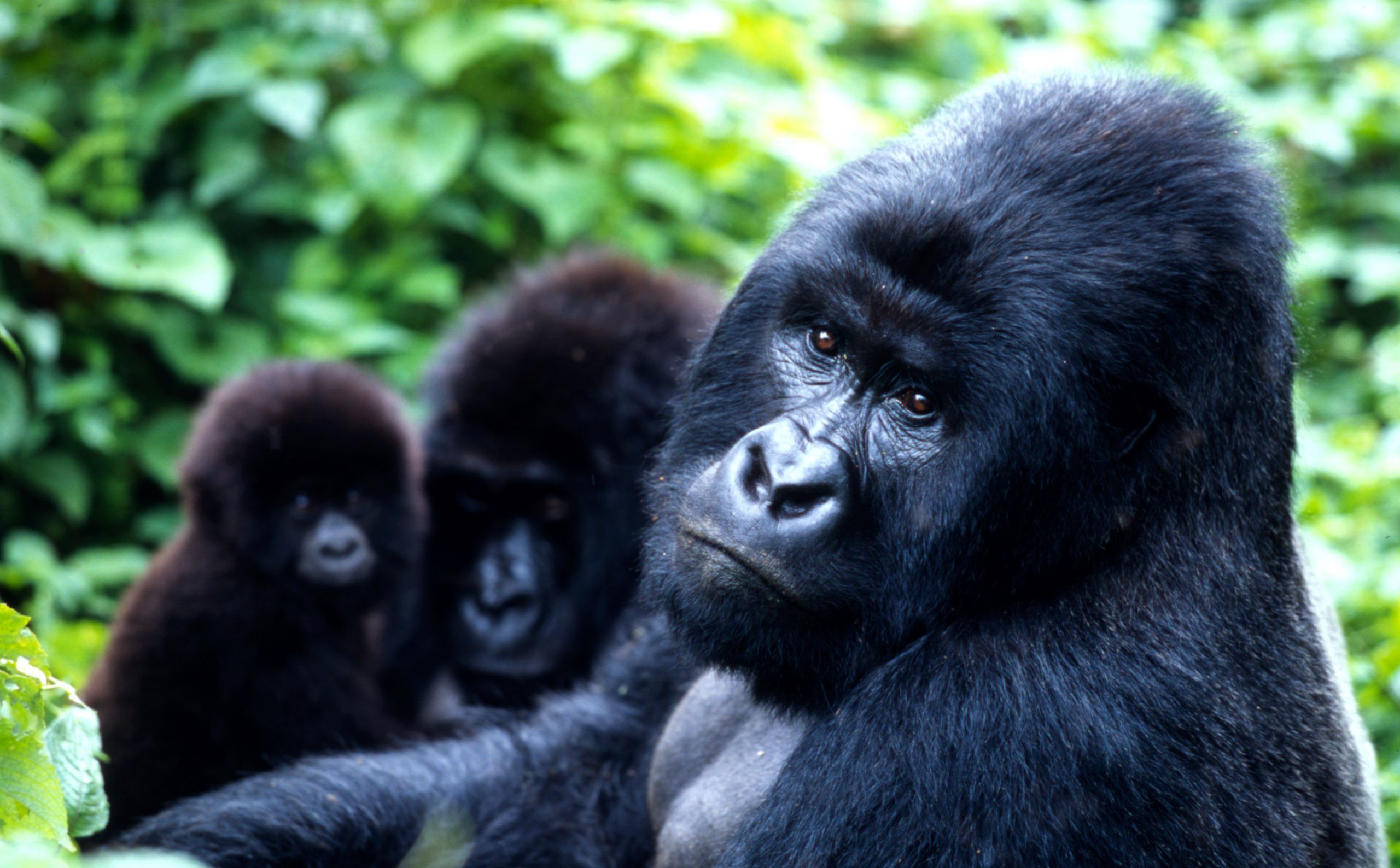The total world population of mountain gorillas has risen to 880, according to census data released today by the Uganda Wildlife Authority. The number of mountain gorillas has increased from the 2010 estimate of 786 after a count in Uganda’s Bwindi Impenetrable National Park.
The critically endangered animals live only in two locations, Bwindi and the Virunga Massif area, which spans parts of Democratic Republic of the Congo, Uganda and Rwanda.
A total of 400 mountain gorillas have been confirmed to be living in Bwindi and 480 were counted in the Virunga Massif in 2010. Both populations have had positive trends in population growth over the last decade.
“Mountain gorillas are the only great ape experiencing a population increase. This is largely due to intensive conservation efforts and successful community engagement,” said David Greer, WWF’s African Great Ape Programme Manager.
Many mountain gorilla groups have been habituated to human presence and are a major tourist draw. In addition to supporting the important surveillance activities of park staff, visitor revenue has been reinvested into community projects such as wells and schools.
The greatest current threats to mountain gorillas are entanglement in hunting snares, disease transfer from humans, and habitat loss. The prospect of oil exploration in Democratic Republic of the Congo’s Virunga National Park by petroleum companies is also cause for concern.
While oil drilling would not occur directly in gorilla habitat, industrial activity would compromise the integrity of Virunga National Park, Africa’s first national park and a UNESCO World Heritage Site. An influx of workers and heavy equipment could greatly threaten the park’s prized biodiversity, which also includes elephants, hippos and the rare okapi antelope.
“More people in Virunga would likely lead to an increase in deforestation, illegal hunting and more snares in the forest,” Greer says. “At least seven Virunga mountain gorillas have been caught in snares this year and two did not survive. The gorilla population remains fragile and could easily slip into decline if conservation management was to be disregarded in the pursuit of oil money by elites.”
Mountain gorillas live in social groups and the census results indicate that the 400 mountain gorillas in Bwindi Impenetrable National Park form 36 distinct social groups and 16 solitary males. Ten of these social groups are habituated to human presence for either tourism or research.
The Bwindi mountain gorilla census was conducted by the Uganda Wildlife Authority with support from l’Institut Congolais pour la Conservation de la Nature and the Rwanda Development Board. The census was also supported by the International Gorilla Conservation Programme (a coalition of the African Wildlife Foundation, Fauna & Flora International, and WWF), the Max Planck Institute for Evolutionary Anthropology, Conservation Through Public Health, the Mountain Gorilla Veterinary Project, the Institute for Tropical Forest Conservation, and the Dian Fossey Gorilla Fund International.
This census was funded by WWF-Sweden with supplemental support from Berggorilla & Regenwald Direkthilfe e.V., the Wildlife Conservation Society, and the Max Planck Institute for Evolutionary Anthropology.
###
For additional information:
Alona Rivord, +41 79 959 1963, arivord@wwfint.org














